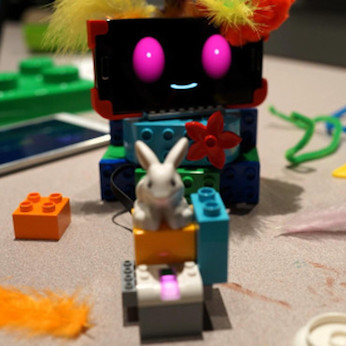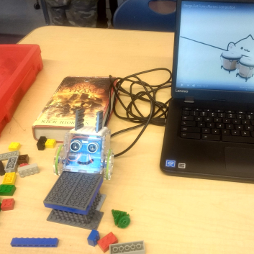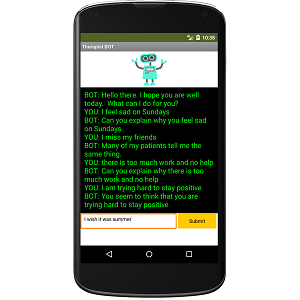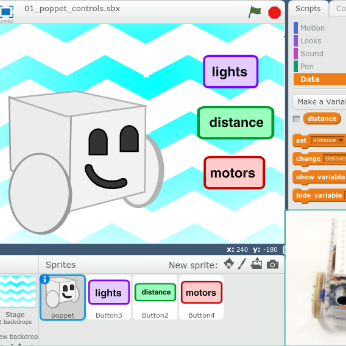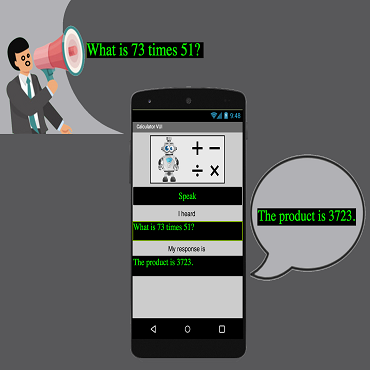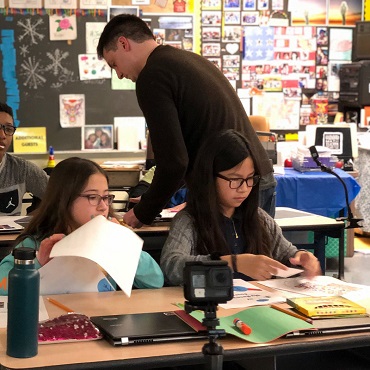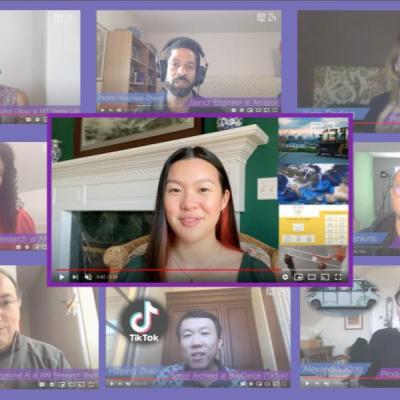Research Projects
We engage in multidisciplinary, iterative, and evidence-based research and development with diverse stakeholders to create new technologies, activities, practices and programs for real-world impact in homes, schools, afterschool programs and online communities. A list of publications for these projects can be found here.
Selected Publications
AI Education Peer-reviewed Research Articles and Preprints
Using Transfer Learning, Spectrogram Audio Classification, and MIT App Inventor to Facilitate Machine Learning Understanding
Bhatia, N. & Lao, N. (2020). Using Transfer Learning, Spectrogram Audio Classification, and MIT App Inventor to Facilitate Machine Learning Understanding. International Conference on Computational Thinking Education 2020 (CTE2020).
Zhorai: Designing a Conversational Agent for Children to Explore Machine Learning Concepts
Lin, P., Van Brummelen, J., Lukin, G., Williams, R. & Breazeal, C. (2020). Zhorai: Designing a Conversational Agent for Children to Explore Machine Learning Concepts. Proceedings of the AAAI Conference on Artificial Intelligence 34, 13381—13388.
Impact of Interaction Context on the Student Affect-Learning Relationship in Child-Robot Interaction
Chen, H., Park, HW., Zhang, X., & Breazeal, C. (2020). Impact of Interaction Context on the Student Affect-Learning Relationship in Child-Robot Interaction. Proceedings of the 2020 ACM/IEEE International Conference on Human-Robot Interaction, 389–397.
Learning to program conversationally: A conversational agent to further democratize programming
Van Brummelen, J., Yeo, C., & Weng, K. (2019). Learning to program conversationally: A conversational agent to further democratize programming. 14th annual International Technology, Education and Development Conference (INTED2020).
Learning to Program Conversationally: A Conversational Agent to Further Democratize Programming
Patton, E.W., Druga, S., & Van Brummelen, J. (2018). Panel: Block Abstractions for AI. Proceedings of the BLOCKS+ at Systems, Programming, Languages and Applications: Software for Humanity (SPLASH), 1-2.
An Exploration of Machine Learning Interface Design
Jessica Van Brummelen, Kevin Weng, Phoebe Lin, Catherine Yeo, (2020). CONVO: What does conversational programming need? An exploration of machine learning interface design. IEEE Symposium on Visual Languages and Human-Centric Computing (VL/HCC).
A Deep Learning Practicum: Concepts and Practices for Teaching Actionable Machine Learning at the Tertiary Education Level
Lao, N., Lee, I., & Abelson, H. (2019). A Deep Learning Practicum: Concepts and Practices for Teaching Actionable Machine Learning at the Tertiary Education Level. IATED2019 Proceedings (12th International Conference of Education, Research and Innovation).
Design of a Virtual Tool for Estimating Vocabulary Acquisition through Reading
Ovienmhada, U., Lao, N., & Van Brummelen, J. (2019). Design of a Virtual Tool for Estimating Vocabulary Acquisition through Reading. 2019 International Conference of Education, Research and Innovation (ICERI), 7724-7732.
Conversational Agents to Democratize Artificial Intelligence
Van Brummelen, J. (2019). Conversational Agents to Democratize Artificial Intelligence. 2019 IEEE Symposium on Visual Languages and Human-Centric Computing (VL/HCC), 239-240.
Constructionism, Ethics, and Creativity: Developing Primary and Middle School Artificial Intelligence Education
Ali, S., Payne, B.H., Williams, R., Park, HW., & Breazeal, C. (2019). Constructionism, Ethics, and Creativity: Developing Primary and Middle School Artificial Intelligence Education. International Workshop on Education in Artificial Intelligence K-12 (EDUAI’19), 13381—13388.
PIC: A Personal Image Classification Webtool for High School Students
Tang, D., Utsumi, Y., & Lao, N. (2019). PIC: A Personal Image Classification Webtool for High School Students. Proceedings of the 2019 IJCAI EduAI Workshop.
A Semantics-based Model for Predicting Children’s Vocabulary
Grover, I., Park, HW., & Breazeal, C. (2019). A Semantics-Based Model for Predicting Children’s Vocabulary. Proceedings of the Twenty-Eighth International Joint Conference on Artificial Intelligence (IJCAI-19), 1358–1365.
The Popstar, the Poet, and the Grinch: Relating Artificial Intelligence to the Computational Thinking Framework with Block-based Coding
Van Brummelen, J., Shen, J.W., & Patton, E.W. (2019). The Popstar, the Poet, and the Grinch: Relating Artificial Intelligence to the Computational Thinking Framework with Block-based Coding. Proceedings of International Conference on Computational Thinking Education, 160-161.
Can Children Learn Creativity from a Social Robot?
Ali, S., Moroso, T., & Breazeal, C. (2019). Can Children Learn Creativity from a Social Robot?. Proceedings of the 2019 on Creativity and Cognition, 359-368.
A is for Artificial Intelligence: The Impact of Artificial Intelligence Activities on Young Children’s Perceptions of Robots
Williams, R., Park, HW., & Breazeal, C. (2019). A Is for Artificial Intelligence: The Impact of Artificial Intelligence Activities on Young Children’s Perceptions of Robots. Proceedings of the 2019 CHI Conference on Human Factors in Computing Systems, 1–11.
A Model-Free Affective Reinforcement Learning Approach to Personalization of an Autonomous Social Robot Companion for Early Literacy Education
Park, HW., Grover, I., Spaulding, S., Gomez, L., & Breazeal, C. (2019). A Model-Free Affective Reinforcement Learning Approach to Personalization of an Autonomous Social Robot Companion for Early Literacy Education. Proceedings of the AAAI Conference on Artificial Intelligence 33, 687–694.
PopBots: Designing an Artificial Intelligence Curriculum for Early Childhood Education
Williams, R., Park, HW., Oh,L., & Breazeal, C. (2019). PopBots: Designing an Artificial Intelligence Curriculum for Early Childhood Education. Proceedings of the AAAI Conference on Artificial Intelligence 33, 9729–9736.
A Social Robot System for Modeling Children’s Word Pronunciation
Spaulding, S., Chen, H., Ali, S., Kulinski, M., & Breazeal, C. (2018). A Social Robot System for Modeling Children’s Word Pronunciation. Proceedings of the International Conference on Autonomous Agents and MultiAgent Systems (Socially Interactive Agents Track), 1658-1666.
Growing Growth Mindset with a Social Robot Peer
Park, HW., Rosenberg-Kima, R., Rosenberg, M., Gordon, G., & Breazeal, C. (2017). Growing Growth Mindset with a Social Robot Peer. Proceedings of the 2017 ACM/IEEE International Conference on Human-Robot Interaction, 137-145.
Affect-Aware Student Models for Robot Tutors
Spaulding, S., Gordon, G., & Breazeal, C. (2016). Affect-Aware Student Models for Robot Tutors. Proceedings of the 2016 International Conference on Autonomous Agents & Multiagent Systems, 864–872.
Can Children Catch Curiosity from a Social Robot?
Gordon, G., Breazeal, C., & Engel, S. (2015). >Can Children Catch Curiosity from a Social Robot? Proceedings of the 2017 ACM/IEEE International Conference on Human-Robot Interaction, 91-98.


